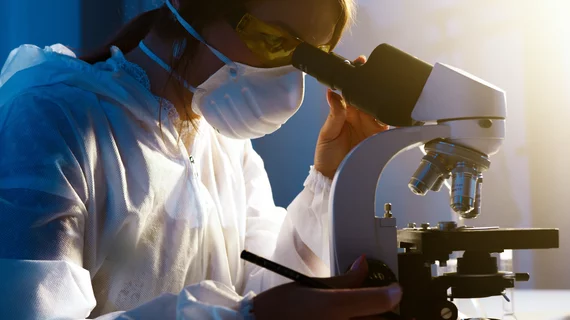Cancers of unknown origin give it up to pathology AI
Researchers have developed an AI system that can differentiate primary tumors from metastatic lookalikes on routine histology slides while also helping pinpoint the sites from which the cancer sprung.
Such quick diagnostic assists can yield significant therapeutic benefits, as a metastasis is most effectively treated as an advanced-stage primary cancer rather than a cancer of the site of spread. For example, breast cancer that travels to the lung is fought not as lung cancer but as stage 4 breast cancer.
The AI system was developed by Harvard researchers at Brigham and Women’s Hospital and is described in a study published May 5 in Nature.
Faisal Mahmood, PhD, and colleagues note that recent investigations have emphasized genomic testing to ferret out cancer of unknown primary (CUP) origin. The problem with this approach is its expense, time demand and inaccessibility to much of the general public.
Calling their algorithm TOAD for Tumor Origin Assessment via Deep Learning, Mahmood and team report the system had 83% accuracy identifying cancers with known primary origins and topped 95% placing the diagnosis within its top three likelihoods.
“TOAD can be used as an assistive tool to assign a differential diagnosis to complicated cases of metastatic tumors and CUPs and could be used in conjunction with or in lieu of ancillary tests and extensive diagnostic work-ups to reduce the occurrence of CUP,” the authors write.
In coverage of the work by Harvard Medical School’s news division, Mahmood adds that the model’s top predictions “can accelerate diagnosis and subsequent treatment by reducing the number of ancillary tests that need to be ordered, reducing additional tissue sampling and reducing the overall time required to diagnose patients, which can be long and stressful.”

